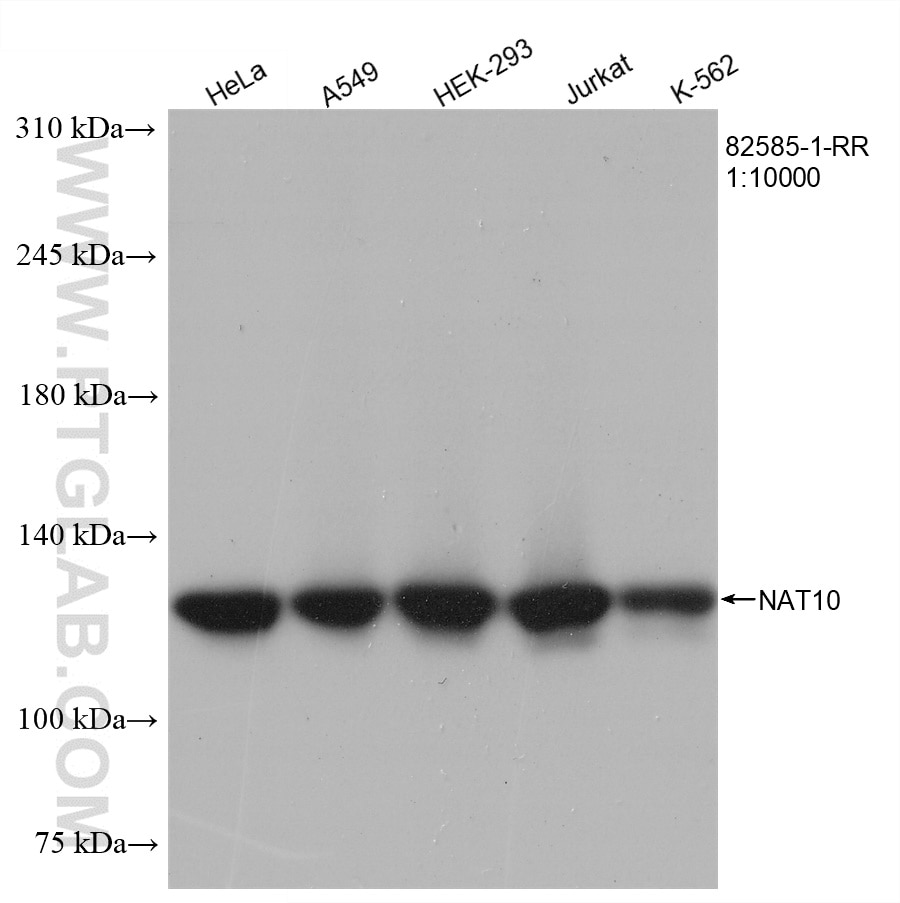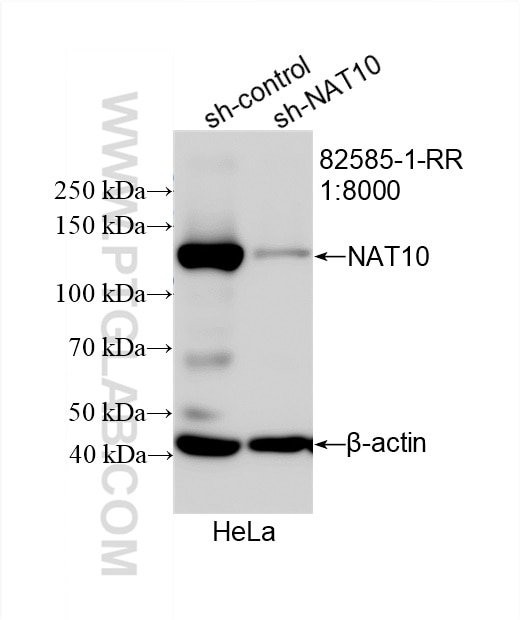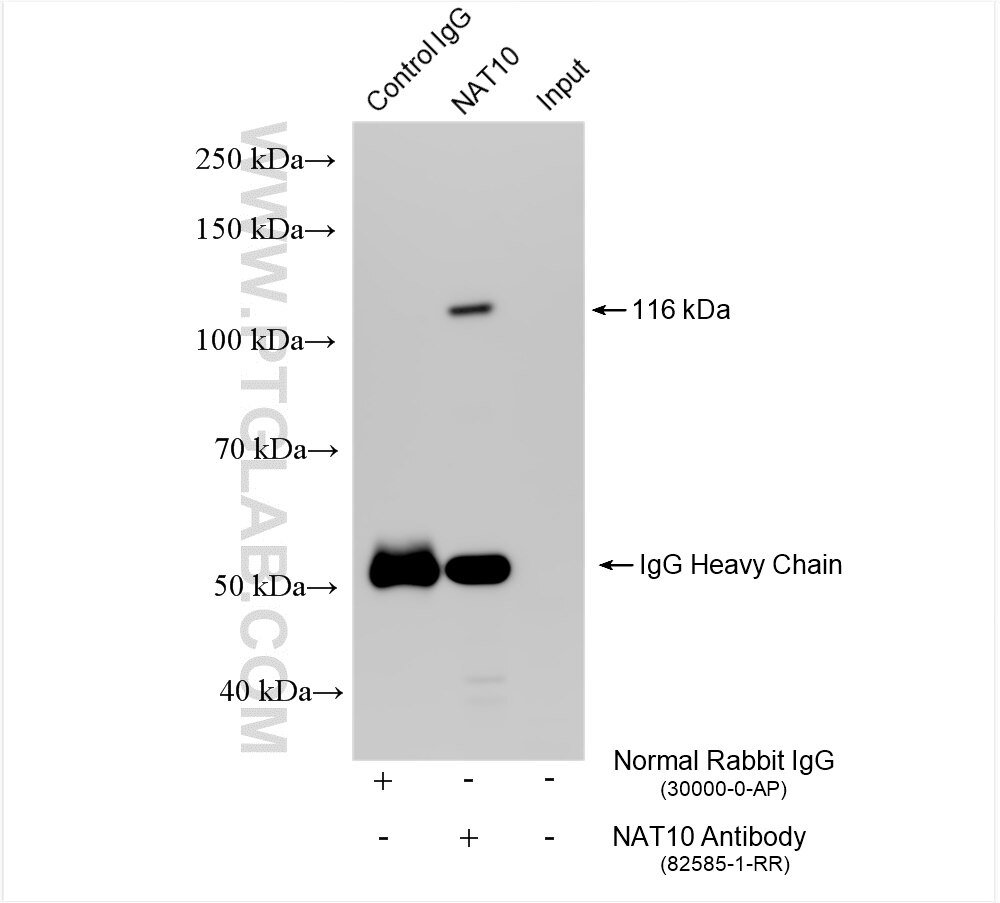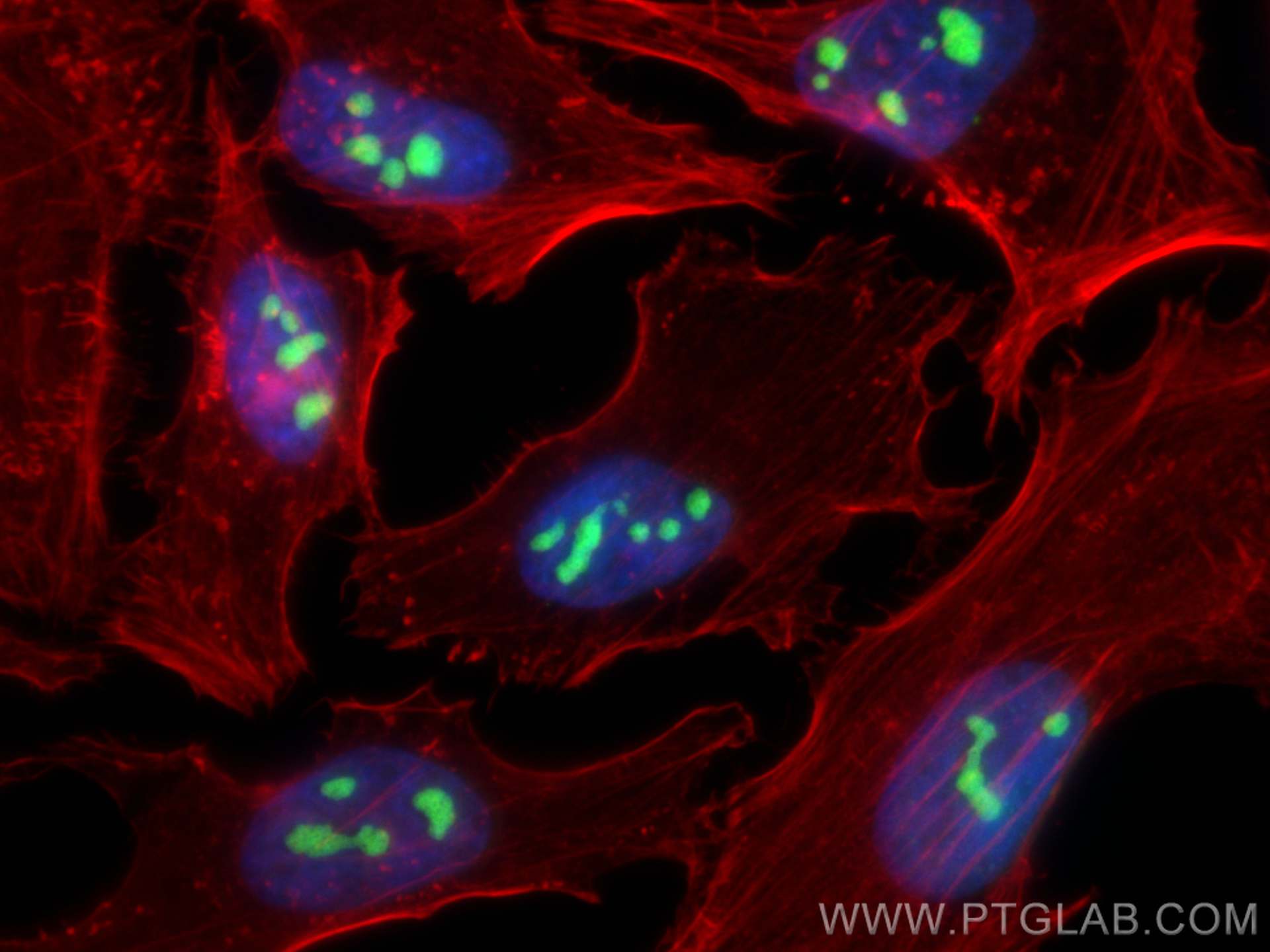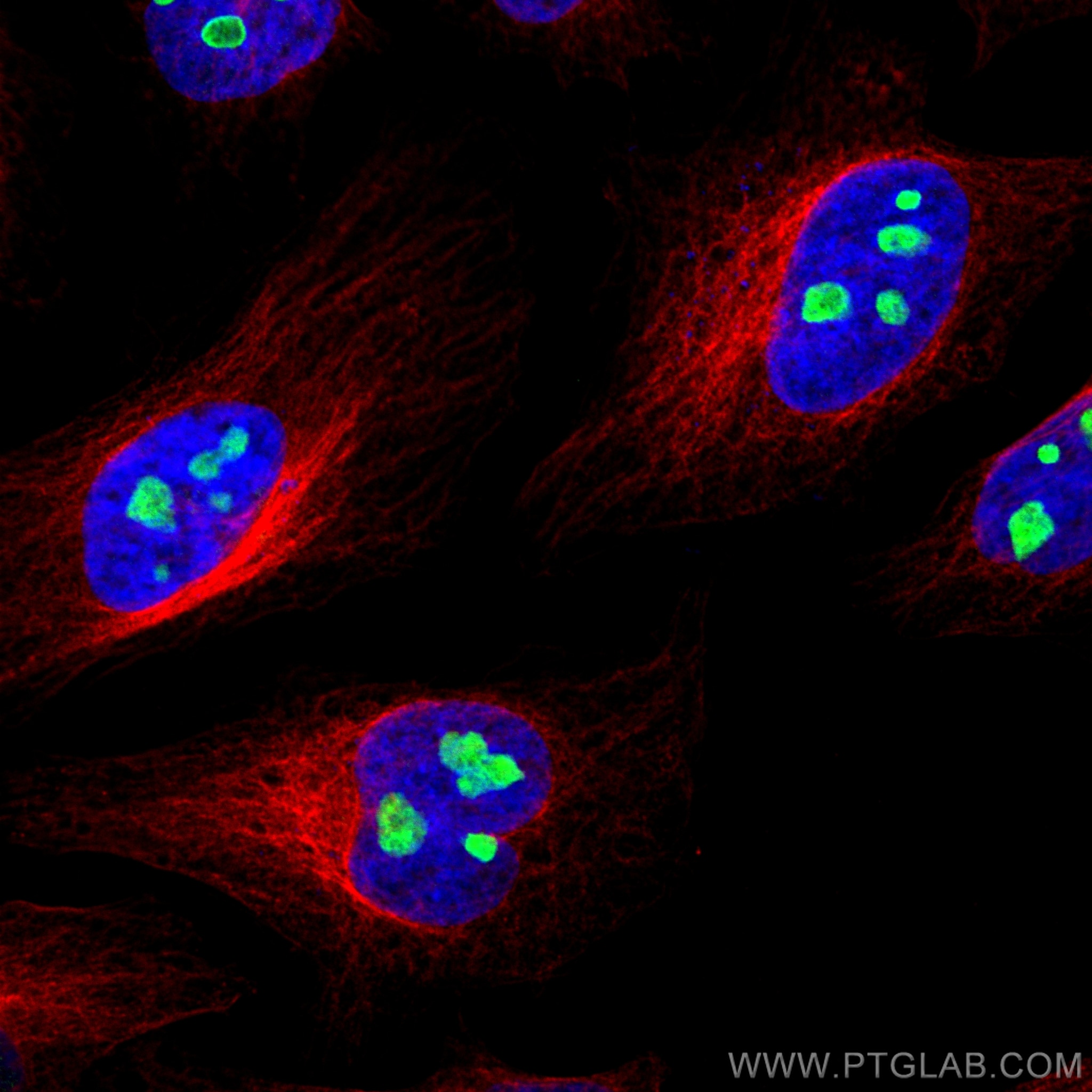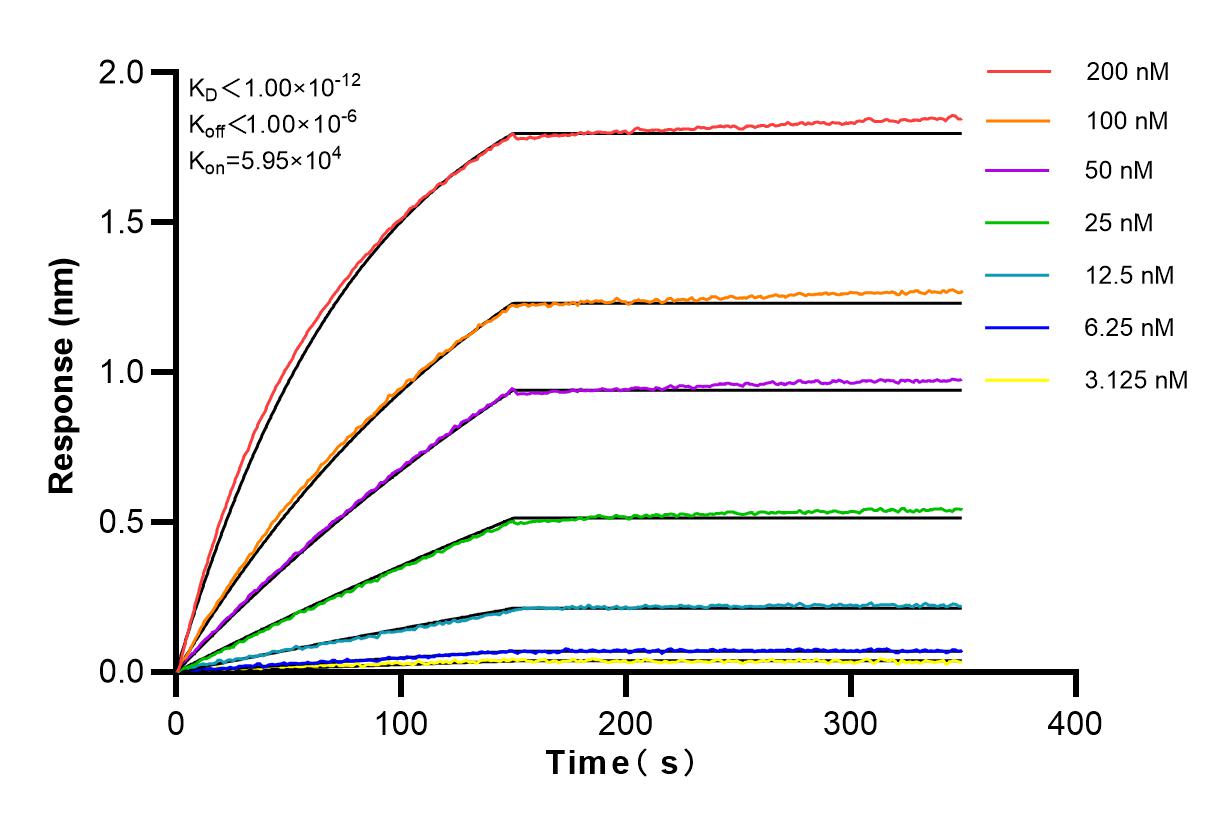- Featured Product
- KD/KO Validated
NAT10 Rekombinanter Antikörper
NAT10 Rekombinant Antikörper für WB, IF/ICC, IP, Indirect ELISA
Wirt / Isotyp
Kaninchen / IgG
Getestete Reaktivität
human
Anwendung
WB, IF/ICC, IP, Indirect ELISA
Konjugation
Unkonjugiert
CloneNo.
5B9
Kat-Nr. : 82585-1-PBS
Synonyme
Geprüfte Anwendungen
Produktinformation
82585-1-PBS bindet in WB, IF/ICC, IP, Indirect ELISA NAT10 und zeigt Reaktivität mit human
| Getestete Reaktivität | human |
| Wirt / Isotyp | Kaninchen / IgG |
| Klonalität | Rekombinant |
| Typ | Antikörper |
| Immunogen | NAT10 fusion protein Ag4184 |
| Vollständiger Name | N-acetyltransferase 10 (GCN5-related) |
| Berechnetes Molekulargewicht | 1025 aa, 116 kDa |
| Beobachtetes Molekulargewicht | 116 kDa |
| GenBank-Zugangsnummer | BC035558 |
| Gene symbol | NAT10 |
| Gene ID (NCBI) | 55226 |
| Konjugation | Unkonjugiert |
| Form | Liquid |
| Reinigungsmethode | Protein-A-Reinigung |
| Lagerungspuffer | PBS only |
| Lagerungsbedingungen | Store at -80°C. 20ul Größen enthalten 0,1% BSA. |
Hintergrundinformationen
NAT10 (N-acetyltransferase 10) is a nucleolar protein that is involved in regulation of telomerase activity, DNA damage response, and cytokinesis. It also plays a role in maintaining nuclear shape. Inhibition of NAT10 has been reported to rescue the misshapen nuclei in laminopathic cells via microtubule reorganization. The specificity of this antibody has been tested by siRNA (PMID: 24786082). NAT10 regulates mitotic cell fate by acetylating Eg5. NAT10 depletion results in multinuclear giant cells, which is the hallmark of mitotic catastrophe (PMID: 35210604). NAT10 plays a crucial role in carcinogenesis through influencing EMT, hypoxia, ribosomal biogenesis and overall, promoting translational efficiency. Recently, we reported that treating cancer cells with Remodelin, a small molecule inhibitor of NAT10, causes alteration in global lipid metabolism (PMID: 36149760).
